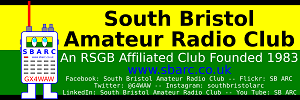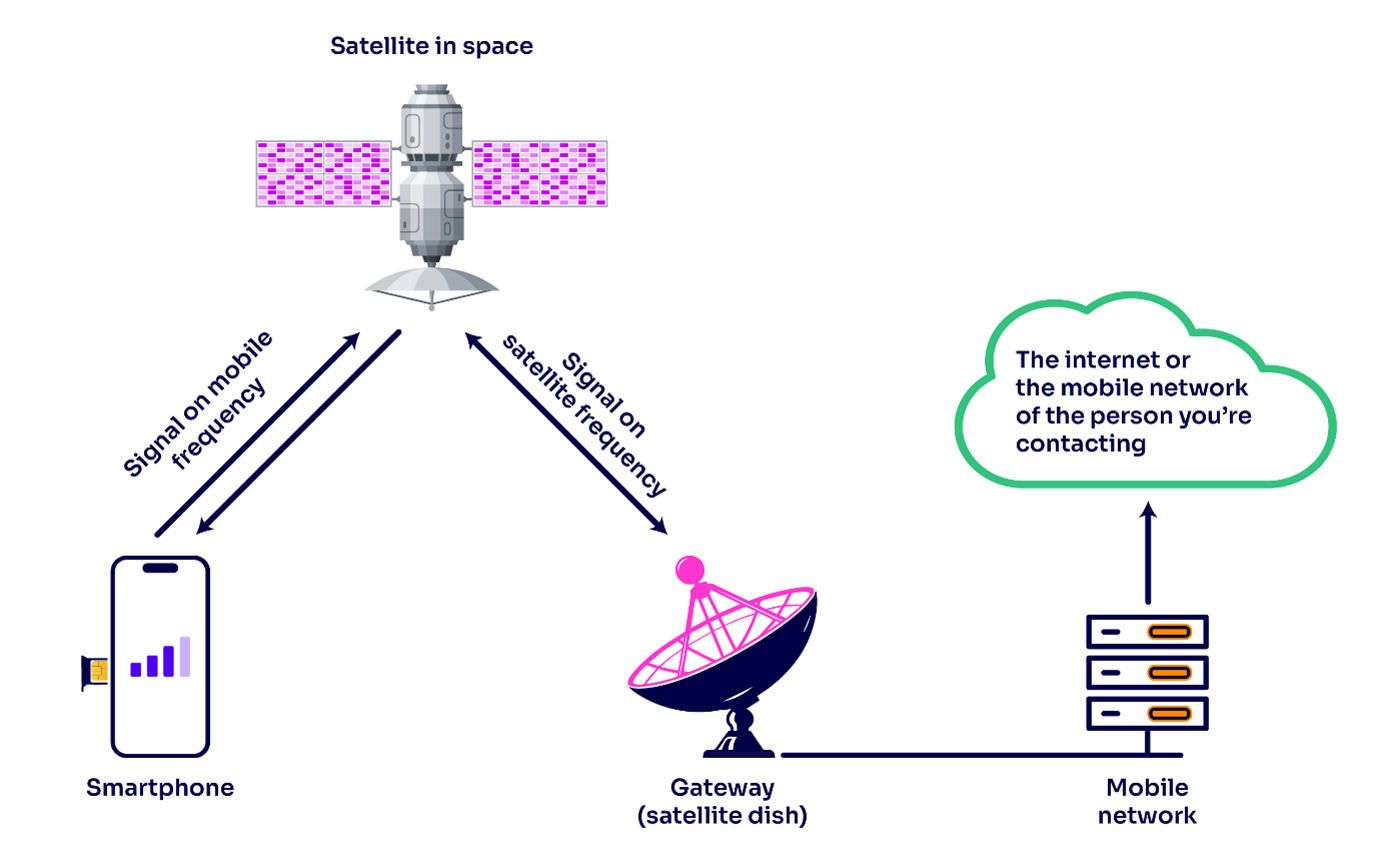You are encouraged to share this post with your friends, acquaintances, colleagues and family by all channels available to you.
News posts, such as this, published on the SBARC website are reposted via a number of other channels including social media feeds and our Groups.io mailing lists. These external services may alter the formatting or layout of the original News Post. If you want to see this News Post in its original form please visit the SBARC website News page and follow the link or links to the story or stories of your choice.
On September 9 2025 Ofcom confirmed that it will move ahead with plans to make the UK the first country in Europe to enable standard smartphones to connect to satellites using mobile spectrum bands.
This means that services could soon be offered in the UK to enable standard smartphones to make calls, send texts and connect to the internet when there is no coverage from mobile masts on the ground, helping to connect the UK’s most rural and hard-to-reach places.
The announcement follows a consultation earlier this year in which Ofcom proposed several different approaches to authorising this ‘direct to device‘ technology being used in mobile spectrum bands.
In a post on the Ofcom website on 25 March 2025, Ofcom wrote:
- UK first country in Europe to move ahead with innovative plans for standard smartphones to make satellite calls,
- Ofcom proposals would enable mobile networks and satellite operators to connect customers from space,
- People and businesses in hard-to-reach areas to benefit most,
- People in the UK could soon be able to make satellite calls from their everyday smartphones, under proposals announced by Ofcom today.
Cutting-edge ‘direct-to-device‘ technology means satellites in space can now beam signals straight to standard smartphones, so they can make calls, send texts and connect to the internet when there is no coverage from mobile masts on the ground.
Previously, mobile satellite services from space have mainly been available to a niche group of users – for example, on ships and aircraft – with specialist handsets that can be expensive.
If this was more widely available, it would help connect the UK’s
most rural and hard-to-reach places. This could mean getting a signal in remote villages and up mountains, and could provide vital back-up options during outages. Given advances in this technology, Ofcom is proposing to allow mobile networks and satellite operators to use mobile airwaves – called radio spectrum – to connect mainstream handsets in the UK.
For years, we’ve seen satellite calls in disaster movies on special handsets. We’re now on the cusp of people being able to make them on their everyday smartphones.
Ofcom always strives to be at the forefront of technological change, and the UK will be the first country in Europe to press ahead with the next frontier in mobile connectivity. This would unlock investment, open doors to innovation and growth, and bring much-needed mobile coverage to rural areas.
Closing Connectivity Gaps
In January 2025, Vodafone successfully made the world’s first satellite video call using a standard mobile phone, up a mountain in west Wales where there was no coverage. This was made possible by Ofcom issuing an innovation and trial licence.
This new technology would complement existing terrestrial networks and could eventually result in 100% of the UK having mobile coverage, unlocking the potential of the most rural and remote communities.
It could also be used in the UK’s coastal waters, meaning better-connected ships and passengers, or for back-up mobile coverage during power outages, and to improve emergency 999 services in remote locations.
Under proposals consulted on in March 2025, Ofcom would authorise these direct-to-device services using a range of frequencies that are already used by the mobile sector, and there would be strict conditions attached to avoid interference.
To ensure the conditions are followed, Ofcom were considering three authorisation approaches. Their preferred approach is to amend the licences already held by mobile network operators and create an accompanying exemption for mobile handsets connecting to these services. Alternatively, Ofcom could introduce a new licence for these services or permit licence exempt use subject to specific conditions being met.
The UK is the first nation in Europe to move ahead with proposals for direct-to-device services to be authorised for widespread commercial use, which could be rolled out from as early as 2025.
Next steps
Ofcom’s consultation on these proposals closed on 20 May 2025. Subject to the feedback received, Ofcom could potentially make a decision and begin authorising direct-to-device services later in 2025.
Ofcom have decided to authorise these services by introducing a variation to Mobile Network Operators’ (MNOs) existing licences. Alongside this, Ofcom will also create a new exemption regulation to make it lawful for ordinary users to connect to a satellite in mobile spectrum bands using a standard smartphone.
Ofcom opened a further consultation on 09/09/2025 seeking views on the conditions they would include in the MNO licence variation, and on their intention to create an exemption to permit mobile handsets and other sim-enabled devices to connect to direct-to-device services.
This page sets out decisions, and further consultation proposals, to authorise the use of spectrum bands used by the UK’s Mobile Network Operators (MNOs) for satellite Direct to Device (D2D) services.
D2D services are designed to provide satellite connectivity to mass market mobile phones in areas not covered by terrestrial mobile networks. They have the potential to increase outdoor geographic coverage and provide a basic backup service in the event of outages on the terrestrial networks.
Enabling satellite D2D services in the UK could improve connectivity for consumers and businesses, particularly in remote areas, enhance resilience and access to emergency services; support investment and innovation, as D2D may unlock new uses of IoT devices; and open new opportunities for mobile network operators (MNO) to use their licensed spectrum holdings more intensively.
In March 2025, Ofcom consulted on proposals to introduce a spectrum authorisation framework to enable D2D services in spectrum bands below 3 GHz, that are currently licensed to UK MNOs.
Having sought stakeholder input on our proposals, this document sets out:
- The decisions Ofcom are taking to implement their framework,
- The notice of Proposed Regulations, and
- Further consultation on proposed technical conditions to protect Air Traffic Control (ATC) radars from potential interference from D2D services operating in the 2.6 GHz band, and the non-technical and technical conditions which
Ofcom would include in the MNO licence variation.,/p> Use of radio equipment in the UK is unlawful if not licensed or otherwise exempt from the need to hold a licence under the Wireless Telegraphy Act 2006. Therefore, Ofcom now proposes to make legislation in the form of a statutory instrument which would generally authorise the use of mobile handsets and other SIM-enabled devices when using D2D services. The statutory instrument takes the form of exemption regulations, which authorise such use, under section 8 of the Wireless Telegraphy Act 2003. Ofcom welcomes all comments on this proposal on the draft regulations.
Responding to this Consultation
Please submit responses using the response form no later than 5pm on 10 October 2025.



